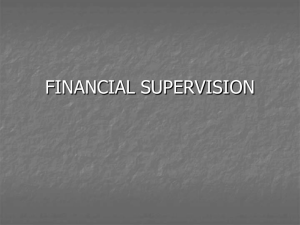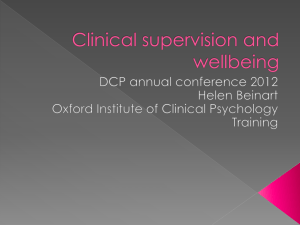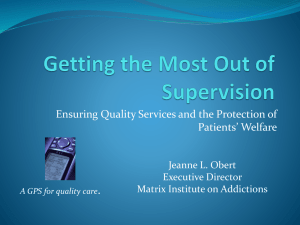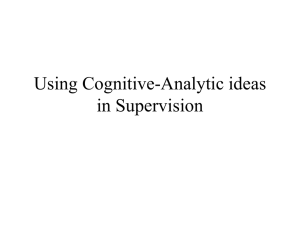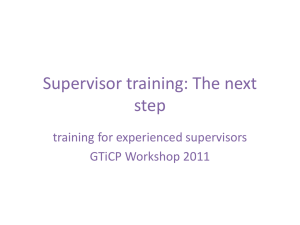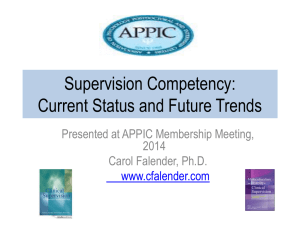Triadic Clinical Supervision
advertisement
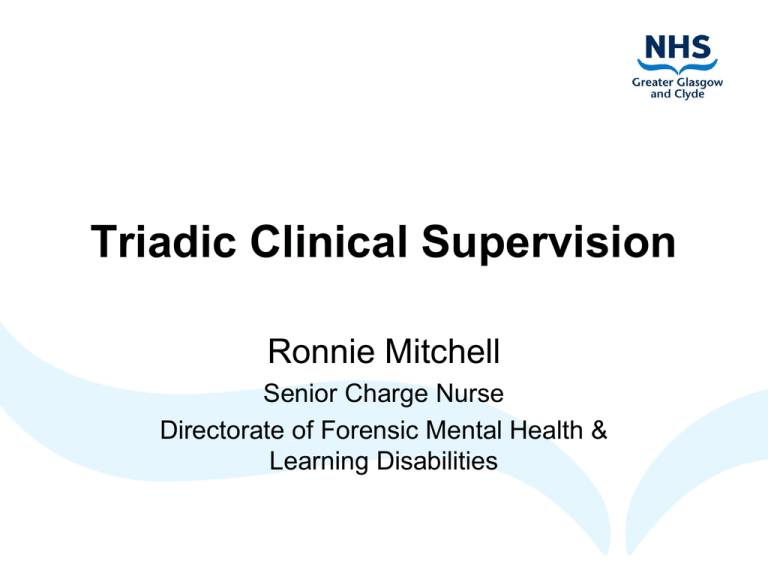
Triadic Clinical Supervision Ronnie Mitchell Senior Charge Nurse Directorate of Forensic Mental Health & Learning Disabilities Why? • As supervision is mandatory there was a need for standardising supervision provision across the directorate • Provide increased support to clinical supervisors, many of which were new supervisors. • Ensure that supervision sessions remain focused on clinical practice Triadic Approach • First implemented across the directorate in 2011 • Initially a small number of Band 6 and 7 nurses trained as Triadic Consultants • Following this, there was a roll-out of additional Clinical Supervisor training across the directorate Triadic Model • Involves three people taking part in a supervision session – Supervisor – Supervisee – Triadic Consultant Role of Triadic Consultant • To advocate the benefits of clinical supervision within their area of responsibility • To attend (at least) the first three supervision sessions delivered by new supervisors. • Thereafter attend regular supervision sessions with each supervisor in order that standards are maintained. Role of Triadic Consultant • Main source of support for clinical supervisors during sessions • Ensure that the focus of each supervision session remains on clinical practice • Is able to provide constructive feedback to the clinical supervisor at the end of each session In Practice • Supervisor can seek advice from Consultant on up to 3 occasions during a supervision session, (typically lasting 1 hour) • If deemed necessary, the Consultant can interrupt the session no more than twice. • Supervisee cannot interact directly with the Consultant Challenges • Supervisees can initially feel uncomfortable having a third person in the room. • The Consultant has to endeavour to remain as unobtrusive as possible. • Maintaining a regular calendar of supervision for each nurse (typically every 6 weeks) Benefits • Uniformity of supervision delivery across the directorate. • Regular, timeous sessions provide staff with an ongoing source of clinical support. • Supervisors are able to seek advice/feedback from Consultants almost at the point of delivery. Audit • A record of attendance for each supervision session is kept at individual ward level • Monthly Audits are submitted by SCNs to Lead Nurse detailing number of sessions delivered What’s Next? • Additional Clinical Supervisors can be trained as required. • Triadic Consultants will continue to take part in sessions with each of their supervisors • Refresher training (if required) for supervisors is available.
